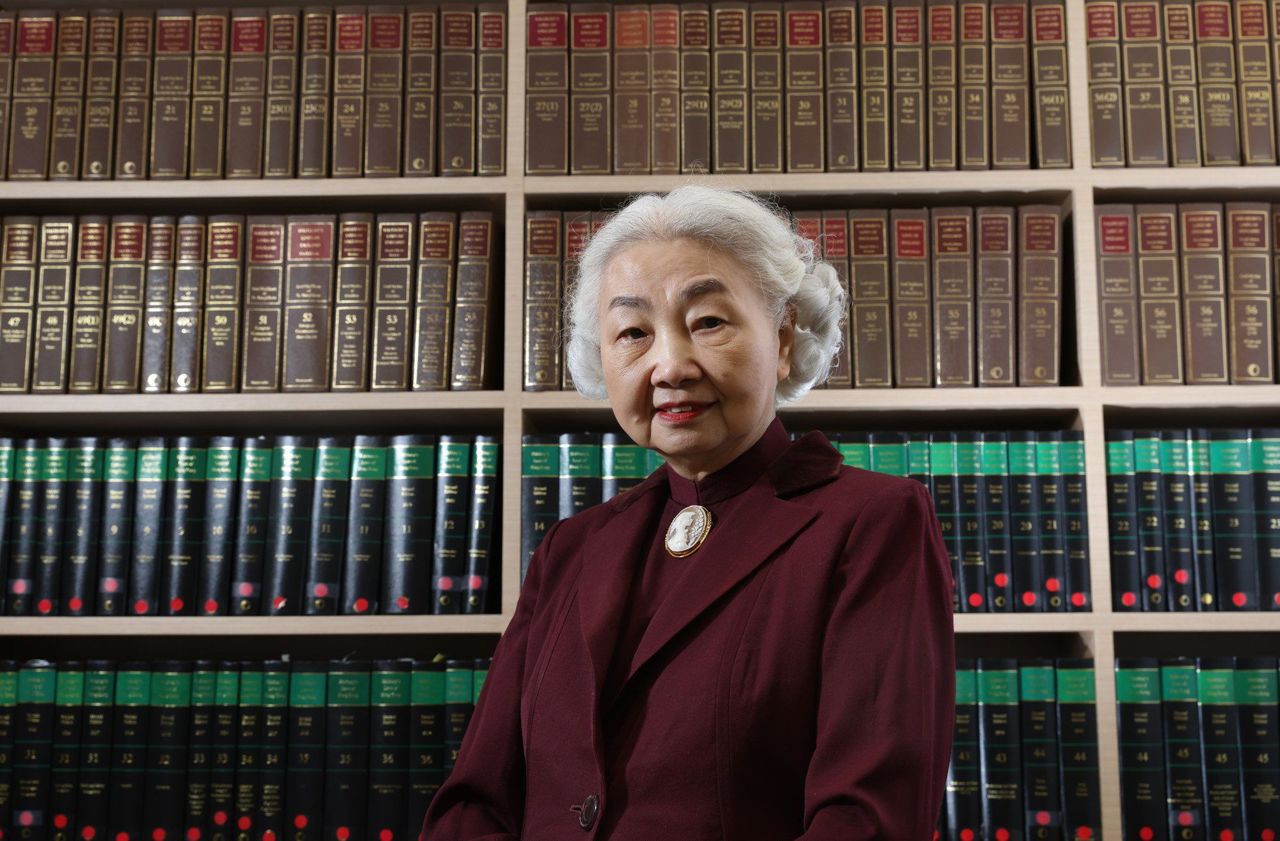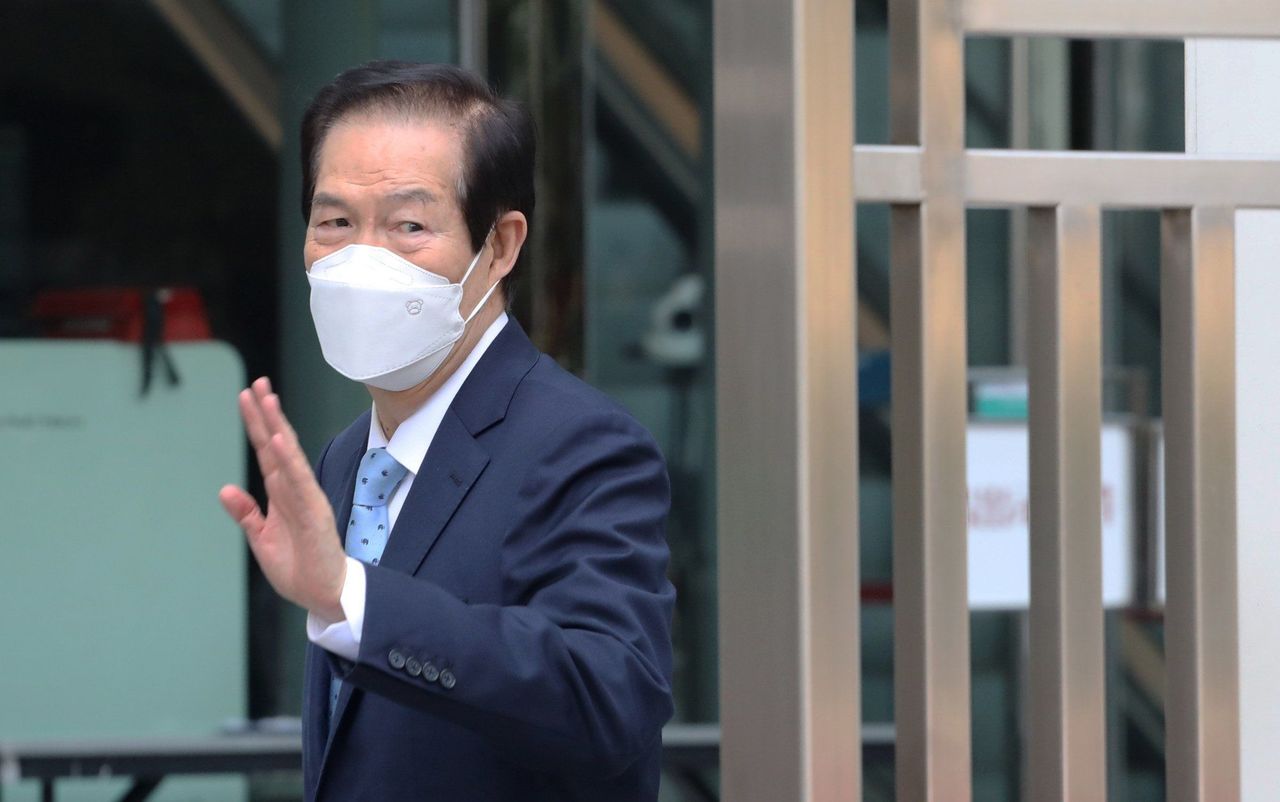Hong Kong News

NSL interpretation controversy unresolved in Hong Kong’s pro-establishment camp
Hong Kong’s latest political showdown involving a clarification on foreign lawyers’ role in national security cases has created divisions among the pro-establishment camp, with some backing the government’s plan to seek an interpretation from Beijing and others saying the arrangement should follow local law.
The city’s first justice minister Elsie Leung Oi-sie and pro-Beijing heavyweight Lo Man-tuen led most of the debate on Wednesday, two days after Hong Kong’s chief executive asked Beijing to interpret the national security law ahead of media tycoon Jimmy Lai Chee-ying’s trial.
The founder of the now-defunct Apple Daily newspaper had wanted to to hire British barrister Timothy Owen, a king’s counsel, to defend him against charges of collusion with foreign forces.
But Chief Executive John Lee Ka-chiu took issue with the potential national security threat the overseas lawyer might pose and reached out to Beijing on Monday for a clarification, despite the approval granted by the Court of Final Appeal.
The National People’s Congress (NPC) Standing Committee’s decision is bound to have far-reaching effects on future national security cases.
 Former secretary for justice Elsie Leung.
Former secretary for justice Elsie Leung. In her note obtained by the Post, Leung said the national security law had not set out “specific requirements for the defence team” and therefore the arrangement should follow local law.
“Somebody is asking for an interpretation but on which provision?” she wrote.
She noted that some had questioned the helpfulness of hiring a foreign barrister when the national security law was only legislated in 2020. “But how much experience do Hong Kong lawyers have?” she fired back, adding that other countries had a longer track record of dealing with national security cases.
Leung cited Chinese President Xi Jinping’s words, stressing his demand to maintain the city’s common law system as its advantage.
The note was written before both the court ruling and the government’s decision to seek an interpretation, according to a friend familiar with her thinking.
The friend added that Leung did not seek to influence the government’s approach, only highlight the significance of allowing the legal system to accumulate experience on handling national security cases and that she also did not oppose Lee’s move to seek an interpretation.
On Wednesday, Lo, vice-chairman of the All-China Federation of Returned Overseas Chinese, was the most outspoken among pro-establishment figures to suggest an interpretation was “the only fundamental solution to the problem”.
Writing in Chinese-language newspaper Ming Pao, Lo blamed the Hong Kong judges for failing to “understand the spirit and legal reasoning of the national security law from the country’s legal perspective”.
 Pro-Beijing heavyweight Lo Man-tuen.
Pro-Beijing heavyweight Lo Man-tuen.
Lo accused the court of resorting to “common law mentality” and “established rules from the past era when the British colonial administration governed”.
“The matter didn’t require an interpretation from the start and could have been resolved within Hong Kong’s judicial system,” he argued.
A Beijing source in charge of Hong Kong’s affairs told the Post that they were aware of the division among the pro-establishment camp on the issue.
Tam Yiu-chung, Hong Kong’s sole delegate to the NPC Standing Committee, who supported Beijing’s “clarifications” even before the court’s ruling, said he had not personally read Leung’s note but respected her suggestions.
“It’s just Leung’s personal view like many others, and Leung is no longer in her position [as vice-chairwoman of the Basic Law Committee],” Tam said.
But he argued lawyers qualified locally would be more experienced and familiar with the national security law as “they know Chinese”.
The pro-Beijing heavyweight also said because the chief executive did not mention which clause of the security law should be interpreted, it should be left to the standing committee to decide.
“It does not necessarily have to be an interpretation of some clauses. It could be a clarification, for example, but this can be left to the standing committee experts to decide,” he said, adding that Beijing would consider the impact on the city’s legal system before imposing any kinds of restrictions or decisions.
A number of business groups and pro-establishment parties also joined the chorus on Wednesday to voice their support for the government’s bid to seek an interpretation.
The list included the Chinese Manufacturers’ Association of Hong Kong, the Chinese General Chamber of Commerce, and the Business and Professionals Alliance for Hong Kong.
The court is expected to discuss on Thursday the arrangement of media tycoon Lai’s national security trial, after the justice department applied for a seven-day adjournment to proceedings pending a decision by Beijing’s top legislative body.
The judiciary expects a high turnout for the case and has reserved three floors and more than 380 seats for reporters and members of the public wishing to attend.











